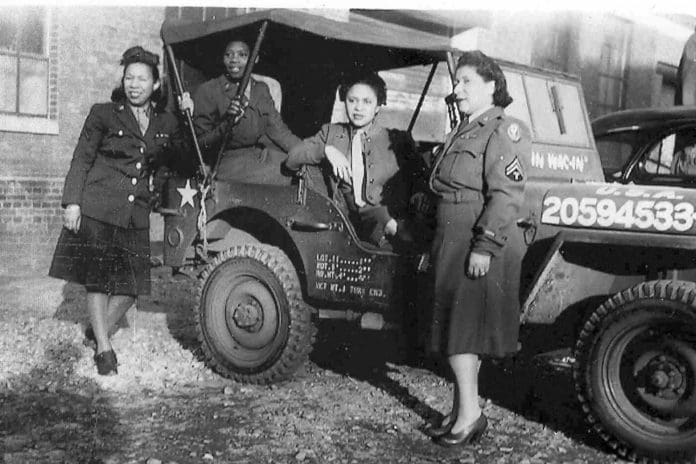Many years ago, colored troops did not sleep, train, or go into battle with their white counterparts because of a belief that they were not as capable. That same policy would haunt them overseas and back home on American soil during and after World War II.
According to the Florida archives, African Americans accounted for a fifth of all Floridians who served in the Second World War.
Dr. Tameka Hobbs is a historian and the head of Edward Waters’ Social Justice Institute in Jacksonville. In a 2013 interview with WFSU, she said oftentimes, black troops would seek battle in hopes of “Double V” or Double-Victory.
“We can win victory for democracy abroad and also win a victory for African Americans rights at home,” said Hobbs.
But in 1940, the U.S. military ramped up its rules on who could join. Men between the ages of 21 and 45 would often face imprisonment if they did not register to go into battle. This was backed by the Selective Training and Service Act.
“It’s very difficult for a group, black men in particular, to be drafted into the service to go into train,” said Hobbs. “[Black troops] go in to fight for rights that they can’t fully enjoy.”
Former Tallahassee Mayor James R. Ford served in the U.S. Navy. He was the city’s first Black mayor. Before his passing in 2017, Ford sat down with WFSU to share some of the challenges he faced as a black draftee.
“If you were black, you understood certain kind of things, you expected certain kind of things,” said Ford. “You learned to bite your tongue and your lips and endure it because you had no choices.”
The number of black service members has grown since the days of James Ford. According to the Statista Research Department, in 2019, 44% of the enlisted active duty were black. Just 28% were black women.
“I had never seen a black female General Officer,” said Air Force Brigadier General Gail Crawford.
Crawford’s title has only been held by very few black women. The Jacksonville-native gave a speech during Wednesday’s commemoration event at the Pentagon.
She says she is looking for more black women to join her in what she calls quote “the freedom to lead.”
“I stand here today as one of many, many firsts,” said Crawford. “My prayer is that we will be the last of the firsts.”
Last month, the U.S. Supreme Court ruled in favor of keeping affirmative action programs at military academies, while striking out its use in college admissions. The ruling has caused tension between the state and federal government as critics argue the military has no room for bias.
9(MDA4MzU1MzUzMDEzMTkyMzAwMzY5MjY1Mw004))
9(MDA4MzU1MzUzMDEzMTkyMzAwMzY5MjY1Mw004))


